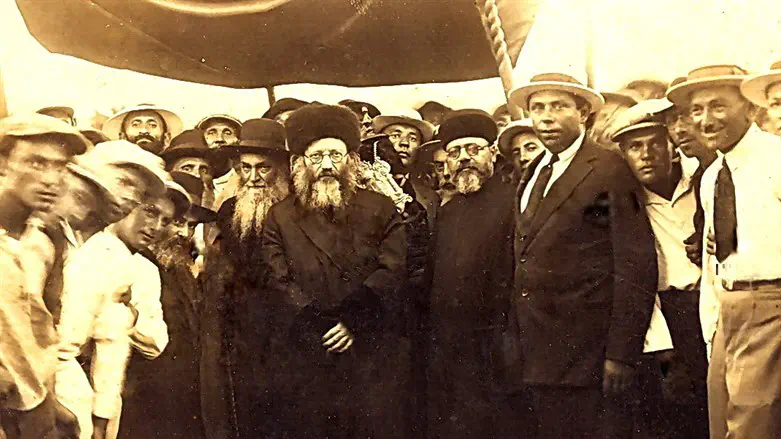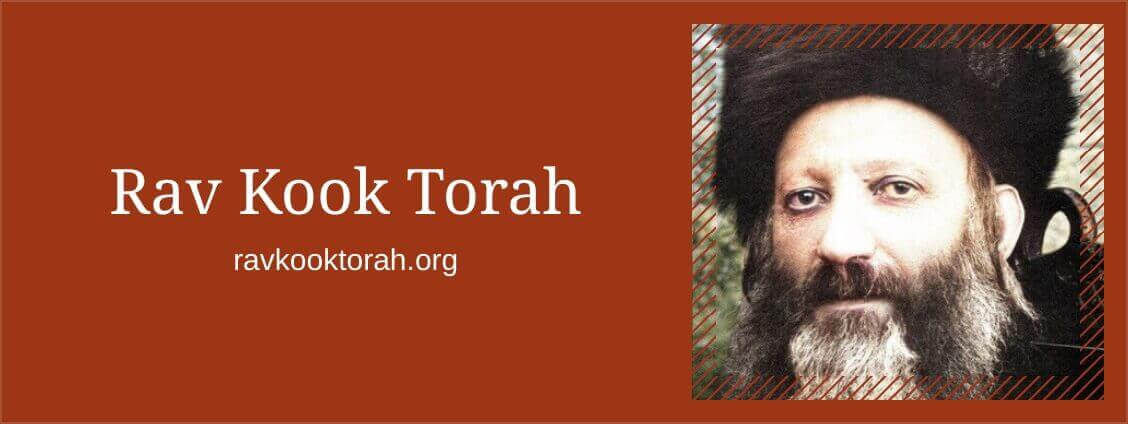
The celebrated first Chief Rabbi of pre-state Israel, Rav Avraham Yitzchak HaCohen Kook (1865-1935) is recognized as being among the most important Jewish thinkers of all time. His writings reflect the mystic's search for underlying unity in all aspects of life and the world, and his unique personality similarly united a rare combination of talents and gifts. He was the undisputed leader of Religious Zionism defining the Jewish People and the Land of Israel as entities with specific commandments in the Torah of Israel, a construct known as Torat Eretz Yisrael.
Rav Kook was a prominent rabbinical authority and active public leader, but at the same time a deeply religious mystic. He was both Talmudic scholar and poet, original thinker and saintly tzaddik.
The Torah promises that if we observe the mitzvot and sincerely love God, we will enjoy timely rain and bountiful crops:
וְנָתַתִּי עֵשֶׂב בְּשָׂדְךָ לִבְהֶמְתֶּךָ וְאָכַלְתָּ וְשָׂבָעְתָּ׃
“I will give plants in your field for your animals; and you will eat and be satiated.” (Deut. 11:15)
Rav Abba Aricha, the celebrated third-century scholar, called attention to the order of the verse: first the animals eat, and only then the people. He learned from here that one should not eat before first placing food before one’s animals.
Why is this? Should not people eat first, since they are more important? Are not human beings "the crown of creation"?
Rav Kook explained that this Talmudic rule of etiquette contains several moral lessons:
- Given our central place in the universe, we have a responsibility to look after all creatures.
- Our food (and in the case of the farmer, also his livelihood) is supplied by cows, chickens, and so on. We should feed these animals first as an expression of the fundamental gratitude we should feel toward these creatures which provide us with our basic needs.
- If we lack food for a short time, we may comfort ourselves with spiritual or intellectual pursuits. This is an integral aspect of the human soul, which is not sustained “by bread alone.” Animals, however, have no such alternate outlets when they are pained by hunger. Therefore, it is logical to deal with the animal’s hunger first.
In purely physical aspects, animals are superior to humans. Is there a human being who is stronger than a bear, faster than a horse, more agile than a cat? Our superiority over animals lies exclusively in the spiritual realms: in our intelligence and our higher aspirations. Therefore, when it comes to physical sustenance, animals take precedence to humans, and by right are served first.
(Sapphire from the Land of Israel. Adapted from Ein Eyah vol. II, p. 180) Illustration image: Animal Industries at Kibbutz Ramat Yohanan (PikiWiki) Sent to Arutz Sheva by Rabbi Chanan Morrison, ravkooktorah.org)

